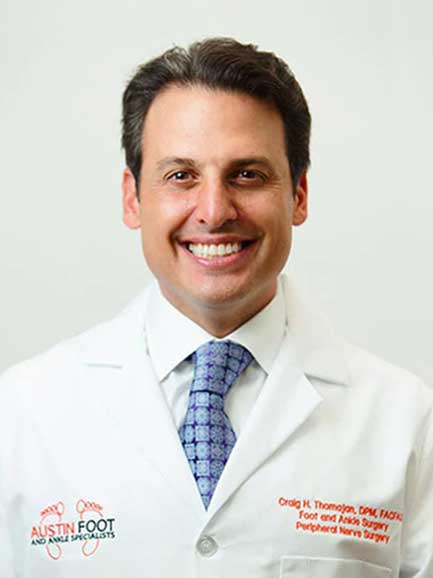When children are active and involved with sports, injuries are bound to happen. There is certainly a wide array of injuries that active children might sustain, but adolescent heel pain tends to be among the most common we see at Austin Foot and Ankle Specialists. For a child, heel pain is often a different entity than what is seen in adults. In most cases, the source of the pain is a condition known as Sever’s disease (calcaneal apophysitis).
What Is Sever’s Disease?
While the most common cause of heel pain for adults is plantar fasciitis, Sever’s disease is typically the root cause of pediatric heel pain. The medical term of calcaneal apophysitis can be broken down into its two parts – calcaneal (heel bone) apophysitis (injury or irritation to a growth plate). The particular growth plate (also known as an apophysis) that causes the issue in this case is found in the back of the heel bone. When it reaches physical maturity before the Achilles tendon—which inserts into the calcaneus at that point—it creates excess tension that can be rather painful for an adolescent, especially when combined with physical activity.
The condition is considered to be an overuse injury and can occur in one or both heels. Typically, this is seen in boys between the ages of 10 and 15, and girls between the ages of 8 and 13. It is most likely to occur with a rapid increase in activity after a period of rest – such as starting football practice in late summer after being off since the spring.
Are There Other Causes of Pediatric Heel Pain?
Absolutely. Calcaneal apophysitis is certainly the most common cause of adolescent heel pain, but there are other issues we see in our young patients. These include conditions like stress fractures, growth plate fractures, plantar fasciitis, bursitis, Achilles tendonitis, and hematagenous osteomyelitis, which is an infection in the heel bone.
Calcaneal Apophysitis Symptoms
Early signs and symptoms include:
- Pain in the back of one or both heels that is worse after activity and relieved with rest
- Limping
- Inability to participate in athletic activities
- Walking on the toes to keep the heel from touching the ground
Calcaneal Apophysitis Triggers
Causes and triggers of pain from calcaneal apophysitis include:
- Rapid increase in physical activity (sports), especially running-related sports like track and field, soccer, and basketball.
- Changes in training surfaces or technique.
- Changes in shoe gear (or going barefoot) while being physically active.
- A tight heel cord (Achilles tendon).
- A rapid increase in growth over a short period of time can cause variations in growth rate between the bones and the soft tissues (muscles, tendons and ligaments), leading to pain and inflammation.
Diagnosing Adolescent and Pediatric Heel Pain

Our doctors at Austin Foot and Ankle Specialist will start your child’s exam with a thorough history and then follow it with a physical exam. During the physical exam, Dr. Craig H. Thomajan DPM, FACFAS will look for:
- Pain and tenderness to the area of the inflamed growth plate
- Overall foot structure
- A tight Achilles tendon
- Abnormalities in gait
X-ray capability is available at Austin Foot and Ankle Specialists and will be used to detect any underlying bone abnormalities and rule out other pathologies (stress fractures, bursitis, infection). Should our doctors suspect a cause of heel pain that requires advanced imaging such as an MRI or CT scan, the appropriate additional test will be ordered.
Treatment
Given that the condition stems from a difference in growth processes between the heel bone and its connective tissue (which will eventually resolve on its own), treatment is centered on providing relief from painful symptoms—not providing a cure. Calcaneal apophysitis symptoms can typically be successfully treated with nonsurgical options like modifications in shoe gear, custom and over-the-counter orthotics, rest, stretching exercises, and anti-inflammatory medications.
If Dr. Craig H. Thomajan, DPM, FACFAS believes physical therapy would be beneficial, a referral to our onsite center is available at Three Lakes Physical Therapy and Wellness Center.

